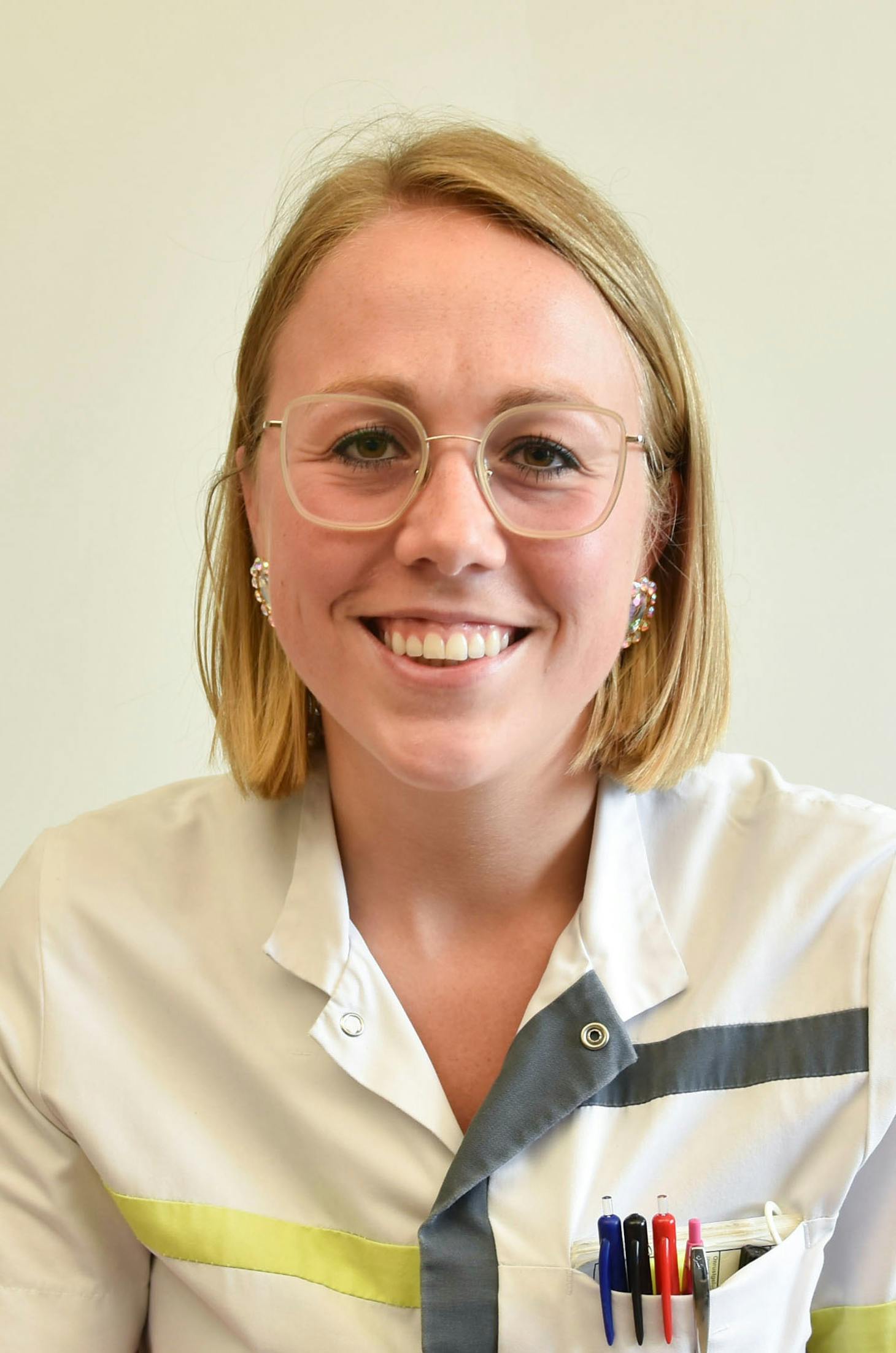The Jan Yperman Hospital Locomotor Rehabilitation Department 1 receives adult patients for intensive rehabilitation after polytrauma, amputation, hip/knee surgery and spinal cord injuries during their admission to the hospital.
After major heart surgery, I was afraid to even ride a bike, but during my rehabilitation I quite soon regained my confidence. I am already doing an average of 21 kilometres per hour now!─ Mrs A, cardiac rehabilitation patient
The main objective in locomotor rehabilitation is to improve the quality of life of persons with severe mobility problems and disabilities. We do this by optimising their recovery, on the one hand and, on the other, by helping them to regain maximum autonomy in spite of the limitations incurred.
The facilities on the ward are adapted in such a way that your stay can be as comfortable as possible. The furnished patio offers patients the opportunity to enjoy the outdoor light on summer days.
Openness
The Sp Locomotor Rehabilitation department is characterised by a number of typical features. The open desk at the nursing station makes it possible to spontaneously talk to the head nurse and the other nurses so the patient and the family stay optimally informed at all times.
Personal care
The patient is seen by a rehabilitation doctor, nurses, physiotherapist and an occupational therapist. A multidisciplinary team meeting is organised once a week to discuss the patient's evolution and to initiate appropriate treatment. This weekly team meeting allows us to apply the best possible rehabilitation therapy.
It also involves close cooperation with all the specialists of the JYZ who follow up the patients on the ward when necessary. This allows us to set up a personalised rehabilitation and to evaluate and adjust the medical care on a day-to-day basis.
In the context of discharge, the family (and possibly partner) are also asked to participate in (a certain part of) the rehabilitation process.
All patients admitted here must meet the following conditions:
Which patients are admitted?
Patients with muscle, joint and nerve injuries, patients with burns, with neurological disorders and patients with heart and lung diseases are all welcomed at the department. Rehabilitation focuses in particular on patients with a complex clinical condition.
These include patients with:
Morning
Afternoon
Evening
In consultation with the patient and their family, the social service examines which home assistance is required and which adjustments are needed in the home situation.
You can make an appointment through the head nurse of the rehabilitation department or contact social services directly on 057 35 66 77.
If returning home is not possible, alternatives are considered together (adapted residential care home, long-term rehabilitation centres, etc.).
I must admit that I did not believe in back school, but anything was better than surgery. After a few sessions, I found that I needed fewer painkillers. After 25 sessions I managed to do without medication altogether. What a relief!─ Mr Z, patient with severe hernia
First floor north wing - rooms 650 - 666

Nele Scheirlynck